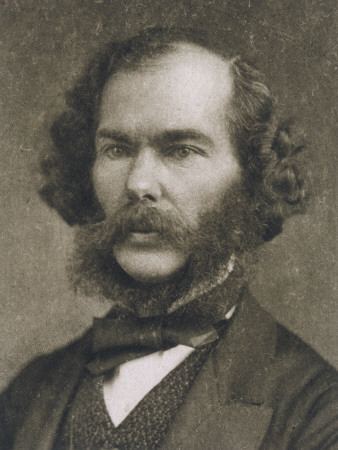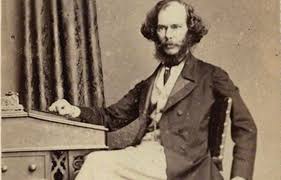George Henry Lewes, born on April 18th, 1817, was a prominent English critic, writer, dramatist and philosopher of his time, famous for his acquaintance with Mary Ann Evans (George Eliot).
Personal Life
After basic and non-focused education, Lewes spent some time in Germany, returning to London in the year 1840. It is during this next period of ten years that he started to write frequently.
He became affiliated with various journals by writing for them. He also got acquainted with John Stuart Mill in the 1840s whereby he learned the philosophy of ‘Positivism’ of August Comte.
Lewes got married in the year 1841 to Agne Jervis, however, it was an open marriage. The two lived collectively with Thorton Leigh Hunt and his wife, along with two more pairs. This arrangement originally proved a success; however, the situations began to deteriorate when Lewes’s wife sired two children with Thorton.
After the birth of the second child, in 1851, Lewes broke off his relations with his wife, and refused to acknowledge and regard her as a companion. He then met Mary Ann Evans in the same year. Given his consent to the open marriage and adultery, a Legal divorce was not feasible for Lewes, therefore he did not get one, so, from the year 1854, when he got separated, till his demise, Lewes and Evans lived together unofficially.
Works by George Henry Lewes
Lewes was a highly distinct writer and intellectual. He gave substantial contributions to the advancement of empirical metaphysics. Also, he contributed greatly in the area of psychological belief, by providing his insights on the concept of treatment of mental conditions in relation with historical and social conditions.
“Ranthorpe”, his novel about the development of a young author, both, academic and ethical, was published in the year 1847. The review he gave to Jane Eyre, written by Charlotte Brontë’s was considered as the original considerable declaration in England about Realist the theory.
Before diverting his attention to scientific research and academia, Lewe also published “Life and Works of Goethe”, the second volume, which is, to this day, considered a vital prologue to the poet.
Along with publishing various papers on ‘sensory and motor nerves’, he also published
Physiology of Common Life, (1859–60), Studies in Animal Life (1862), And Seaside Studies (1858). These were followed by his most ambitious work, Problems of Life and Mind, (1873–79), and a study of Aristotle (1864)
He edited and reviewed ‘The Fortnightly Review’ for a year between ’65 and ’66, aided by providing with articles in the realm of literary criticism, science, and politics.

During the next decade, contributed to quarterly, among other reviews, as a means to support himself. The articles he wrote discussed a wide array of realms, though not considered as an epitome of perfection, often appreciated for his snap judgment aided by deep knowledge of philosophy.
The crowning point of Lewes’s work in literature in relation to the area of ‘prose’ is the ‘Life of Goethe (1855)’, which is often hailed as his most renowned works. The work became immensely popular, liked, and appreciated in Germany, and although there existed some points of criticisms.

He died on November 28, 1878, in mysterious circumstances.
George Henry Lewes Famous Quotes
- Instead, therefore, of saying that Man is the creature of Circumstance, it would be nearer the mark to say that Man is the architect of Circumstance. It is Character which builds an existence out of Circumstance. Our strength is measured by our plastic power. From the same materials, one man builds palaces, another hovels, one warehouses, another villas.
-The Life and Works of Goethe
- It is not by his faults, but by his excellences, that we measure a great man.
-On Actors and the Art of Acting (Leipzig: Bernhard Tauchnitz, 1875) p. 13
- We must never assume that which is incapable of proof.
-The Physiology of Common Life (1859-60; repr. New York: D. Appleton, 1867) vol. 2, p. 349
- The moral nature of man is more sacred in my eyes than his intellectual nature. I know they cannot be divorced — that without intelligence we should be Brutes — but it is the tendency of our gaping, wondering dispositions to give pre-eminence to those faculties which most astonish us. Strength of character seldom, if ever, astonishes; goodness, lovingness, and quiet self-sacrifice are worth all the talents in the world.
-Rose, Blanche, and Violet (London: Smith, Elder, 1848) vol. 1, pp. viii-ix
- Murder, like talent, seems occasionally to run in families.
-The Physiology of Common Life (1859-60; repr. New York: D. Appleton, 1867) vol. 2, p. 322
- Shakespeare is a good raft whereon to float securely down the stream of time; fasten yourself to that and your immortality is safe.
-On Actors and the Art of Acting (Leipzig: Bernhard Tauchnitz, 1875) p. 60